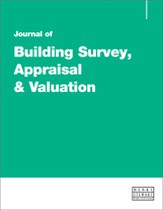Treading a fine line on bias: Impartiality and the Party Wall Surveyor
Abstract
The dispute resolution procedure set out by the Party Wall etc. Act 1996 requires the establishment of a tribunal of surveyors to determine upon matters arising. Colloquially, this is called a statutory tribunal given that its formation is dictated by an Act of Parliament but the courts have only gone so far as referring to it as a practical tribunal. Over the years, the courts have variously credited party wall surveyors with providing expert determinations, being quasi-arbitrators and having a quasi-judicial role. Given this schizophrenic approach as to function, it is not surprising that the rules under which such tribunals operate are far from clear. The principles of natural justice enshrined in English law require members of statutory tribunals to be impartial. Most party wall surveyors endeavour to act impartially in the generally accepted sense of the word but many, unwittingly, will be acting with apparent bias by virtue of their relationships, both personal and working, with their appointing owners or other surveyors. The system of appointment and selection of surveyors is uncontrolled because in defining ‘surveyor’ the Act only excludes the parties to a dispute from taking on the role. This encourages, inter alia, the appointment by parties to the dispute of family members and employees as their surveyors, and the appointment/ selection by party wall surveyors of close acquaintances. All of which puts at least one of the parties in dispute at risk of a biased decision, even if unconsciously made, with their only recourse being to litigate. This must be intrinsically unfair.
The full article is available to subscribers to the journal.
Author's Biography
Peter Worman started his career with British Rail in 1974, before the advent of mobile phones and personal computers. He went on to complete a building surveying degree at Reading University, for which he won the Estates Gazette Cup and RICS prize, and subsequently qualified as a chartered surveyor. In 2009 Peter established PartyWallSurveyors.org to provide training courses aimed at addressing competence issues among party wall surveyors, and in 2017 founded The Party Wall Academy to further raise professional standards in party wall surveying.
Citation
Worman, Peter (2018, March 1). Treading a fine line on bias: Impartiality and the Party Wall Surveyor. In the Journal of Building Survey, Appraisal & Valuation, Volume 6, Issue 4. https://doi.org/10.69554/VUWD9440.Publications LLP
